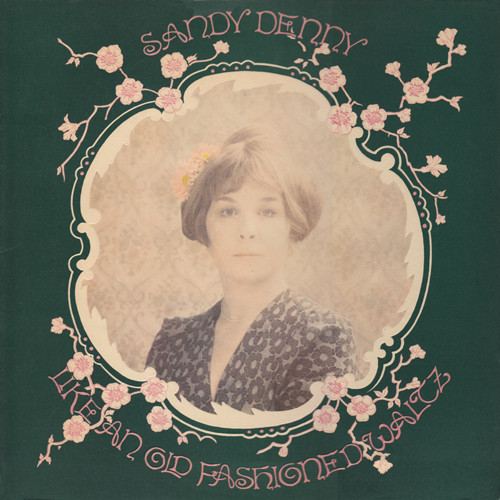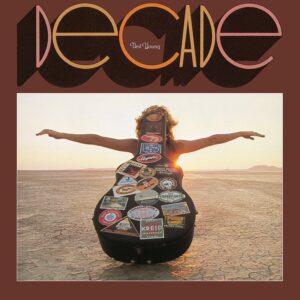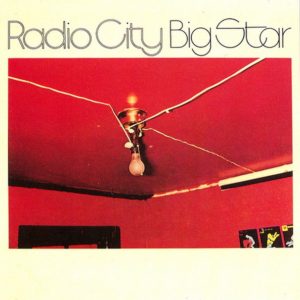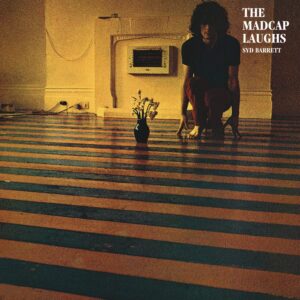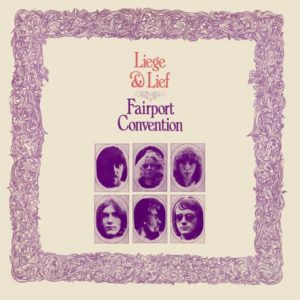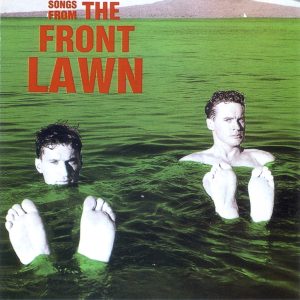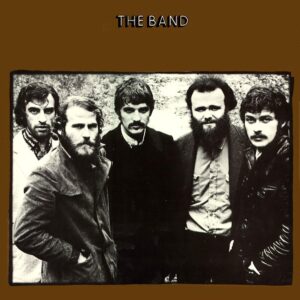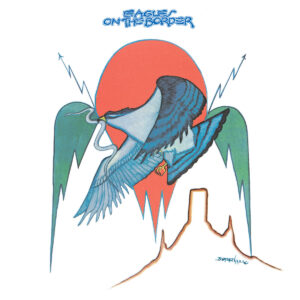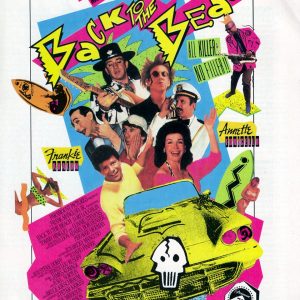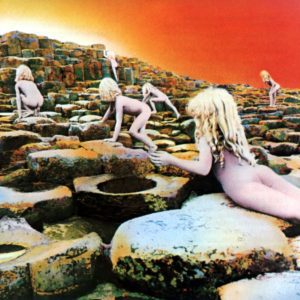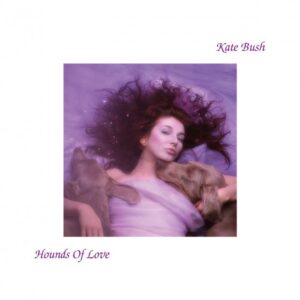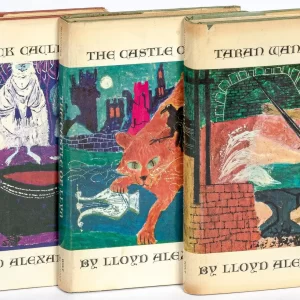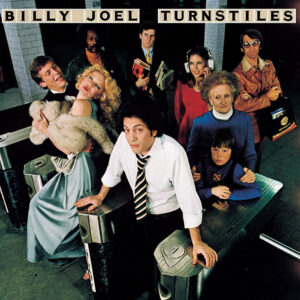
After recording 1969’s landmark folk-rock album Liege & Lief, Fairport Convention splintered. While the band continued with Richard Thompson, bassist Ashley Hutchings departed to form the more traditional Steeleye Span while vocalist Sandy Denny left to spread her wings as a solo artist.
Introduction
Denny was born in London and trained as a nurse before joining the folk club circuit, dating Jackson C. Frank and singing American folk songs. She recorded one album with The Strawbs before joining Fairport Convention. After Fairport, Denny initially formed the band Fotheringay, named for her 1968 Fairport song. Failing to break through, she went solo.
The same year as her solo debut, 1971’s The North Star Grassman and the Ravens, she duetted with Robert Plant on Led Zeppelin‘s ‘The Battle of Evermore’. Along with husband Trevor Lucas, she rejoined Fairport Convention in 1974 and recorded Rising For The Moon.
Denny’s personal life began to unravel in 1976, struggling with alcohol addiction. Linda Thompson reported that she “was crashing the car and leaving the baby in the pub and all sorts of stuff.” In March 1978 she sustained head injuries after falling down a staircase. Denny passed away in April 1978, attributed to a traumatic mid-brain hemorrhage and blunt force trauma to her head.
Despite her relative obscurity, there’s an argument that Denny was England’s leading female singer-songwriter of the early 1970s – Joan Armatrading and Kate Bush didn’t emerge until later in the decade. Her gifts as an interpretative singer and songwriter were already apparent in Fairport Convention, with ‘Who Knows Where The Time Goes?’ Her solo career ended prematurely, but it still contains some gorgeous work.
Sandy Denny Album Reviews
Fotheringay | Fotheringay 2 | The North Star Grassman and the Ravens | Sandy | Like an Old-Fashioned Waltz | Rising for the Moon | Rendezvous
Fotheringay
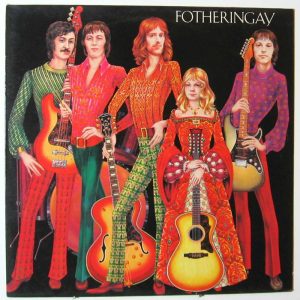
1970, 7.5/10
After leaving Fairport Convention, Denny formed a new folk-rock band. Her boyfriend Trevor Lucas and drummer Gerry Conway previously played in the folk-rock combo Eclection, while guitarist Jerry Donahue and bassist Pat Donaldson were from Poet and the One Man Band. The band are strong, even if they don’t have musicians of the calibre of Fairport’s Dave Swarbrick and Richard Thompson. It’s difficult to hear Lucas given lead vocals when legendary folk singer Denny is in the band, even though as an Australian, it makes sense for him to sing ‘The Ballad of Ned Kelly’.
With Denny sharing the spotlight, but with less talented collaborators than in Fairport, Fotheringay is one of Denny’s lesser records. But when Denny takes centre-stage she’s excellent – standout opener ‘Nothing More’ is foreboding with its atmospheric guitar work. Denny often wrote portraits in song, and ‘Nothing More’ is rumoured to be about Richard Thompson. The Denny-penned and sung material like ‘The Sea’ and ‘The Pond and The Stream’ is enjoyable, while her voice gets a great showcase on a lengthy cover of the traditional ‘Banks of the Nile’. Lucas sounds like a minor league Dylan on Basement Tapes track ‘Too Much of Nothing’, but works well in tandem with Denny on a cover of Gordon Lightfoot’s ‘The Way I Feel’.
Fotheringay is one of Denny’s less coherent records, but it’s worthwhile nonetheless.
Fotheringay 2
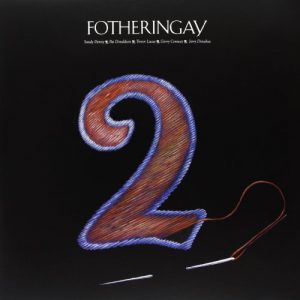
1970/2008, 6.5/10
Denny broke up Fotheringay while they were recording their second album. Producer Joe Boyd had accepted a job with Warner Brothers and relocated to the US. The album was left in the archive until Jerry Donahue completed it, recording extra instrumentation as needed. Fotheringay 2 is pleasant but inessential – Denny’s two original songs, ‘John The Gun’ and ‘Late November’, were both reworked for her 1971 solo debut, The North Star Grassman and the Ravens. She’d also revisit ‘Silver Threads and Golden Needles’, as popularised by The Springfields, on her final solo album Rendezvous.
Meanwhile, Lucas dominates the record, and he’s stronger here. There are clear parallels with the debut – another Dylan cover (‘I Don’t Believe You’) and another song about an Australian outlaw (‘Bold Jack Donahue’). Donahue also fronts the dark folk tale ‘Eppie Moray’, in the spirit of Liege & Lief. ‘Restless’ was later used on Fairport Convention’s Rising For The Moon. Denny’s predictably comfortable on ‘Wild Mountain Thyme’, but there’s nothing revelatory.
Fotheringay 2 is worthy of release, but if you’re already familiar with the songs that made it onto North Star Grassman, it’s more noteworthy for Lucas’ contributions than Denny’s.
The North Star Grassman and the Ravens
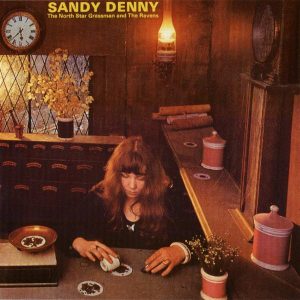
1971, 8.5/10
The North Star Grassman and the Ravens is Denny’s first solo album, but it hardly feels like she’s stepping out on her own. She’s still surrounded by members of Fairport Convention and Fotheringay. Richard Thompson, in particular, looms large – he co-produces, plays electric guitar, and sings lead on a cover of Dylan’s ‘Down in the Flood’. Denny only plays piano on ‘Late November’ – most of the keyboard parts are taken by Ian Whiteman, formerly of 1960s psych band The Action. While it occasionally feels like Denny is avoiding the spotlight, The North Star Grassman is a strong debut, presenting almost a full album of Denny’s compositions in the folk-rock style of her former bands.
‘Late November’ is an outstanding opener, using a dramatic folk-rock sound that’s not far from progressive rock – Thompson contributes a stinging solo. It’s written about the car crash that killed Fairport drummer Martin Lamble, an event that Denny dreamed of in advance. ‘Next Time Around’ presages Denny’s subsequent work, a piano-heavy ballad about former boyfriend Jackson C. Frank. Denny’s vocal is gorgeous on the traditional folk song ‘Blackwaterside’, while ‘John The Gun’ is the hardest-rocking song in Denny’s solo catalogue. The dominant style is pretty, mysterious folk like ‘The Sea Captain’ and the title track.
The North Star Grassman and the Ravens is a fine solo debut for Denny, even while she’s still enjoying the support of her earlier collaborators.
Sandy
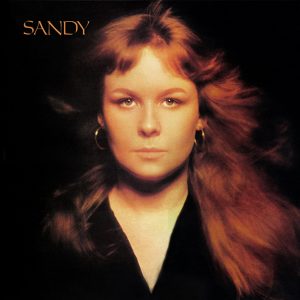
1972, 9/10
A fortnight after finishing the tour for North Star Grassman, Denny was back in the studio recording its follow-up. It’s still a folk album, produced by Trevor Lucas and featuring Richard and Linda Thompson, Dave Swarbrick, and Pat Donaldson. But it’s also a singer-songwriter album – Denny’s acoustic guitar and piano parts are at the centre of many of the songs. Sandy didn’t chart – it’s a shame, as it’s Denny’s most consistent solo release.
Classics include the contemplative opener ‘It’ll Take A Long Time’, while the pretty ‘Listen, Listen’ opens side two. Denny is on piano for the sumptuous ballad ‘The Lady’, while she slips into a working-class accent for ‘It Suits Me Well’. She also tackles the oft-covered Dylan composition ‘Tomorrow Is A Long Time’, while ‘The Quiet Joys of Brotherhood’ adds a Richard Farina lyric to the traditional ‘My Lagaan Love’.
Sandy is the strongest solo album in a sadly brief career.
Like An Old-Fashioned Waltz
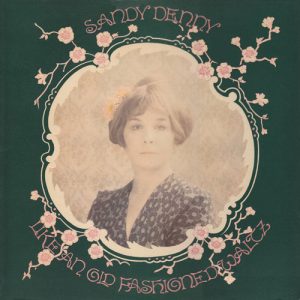
1974, 8/10
Denny coveted mainstream attention with her third solo album, envious of the high-selling acts like The Who and Led Zeppelin who she’d guested with. She shifted away from her folk-rock roots in an attempt to broaden her audience. She assembled a band to tour the record, but its release was held up nearly a year, and by the time it was released she’d rejoined Fairport Convention. Despite the more mainstream sound, it’s not really a step forward – a lot of the songs are too torpid. It’s fun to hear her sing a couple of her father’s favourite jazz standards – ‘Whispering Grass’ and ‘Until The Real Thing Comes Along’ – it helps balance an otherwise sleepy record, and it’s a shame she never made a full jazz record.
Like An Old-Fashioned Waltz starts brilliantly. ‘Solo’ is the gem of her catalogue, with a great descending chord sequence in the verses. “I’ve always kept a unicorn” is an iconic line, and I enjoy the restrained solo section where Richard Thompson, Fairport bassist Dave Pegg, and Denny’s piano play gently around each other. The elegant title track is also excellent, later covered by Emmylou Harris, while ‘Carnival’ is a pretty tune. The closer ‘No End’ is also a fine tune, albeit a little long and overwrought with its strings.
Sadly, Like An Old-Fashioned Waltz marks the end of Denny’s most productive phase as a solo artist. When she returned from a stint in Fairport, she was never quite the same.
Rising For The Moon (Fairport Convention)
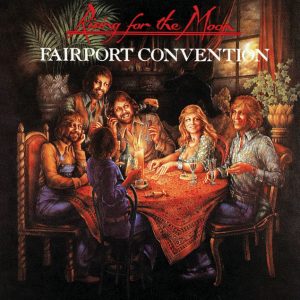
1975, 7.5/10
Along with Trevor Lucas and Jerry Donahue, Denny rejoined Fairport Convention in 1974 – wags labelled the new configuration “Fotheringay Convention”. They joined the three Daves who remained from Fairport’s 1970 lineup – bassist Dave Pegg, drummer Dave Mattacks, and fiddler Dave Swarbrick.
Rising For The Moon is produced by superstar producer Glyn Johns, who’d recently worked on hit records for The Who, the Eagles, and The Rolling Stones. Frustrated with Johns, Mattacks left the band during the recording and was replaced by Bruce Rowland. Linking up with Fairport and Glyn Johns was a sensible move for Denny’s stardom aspirations, but Rising for the Moon is a worthy yet not great album.
Denny dominates the songwriting – it’s nice to hear her backed by Swarbrick’s fiddle, but these songs generally aren’t as strong as those on her preceding solo albums. The lengthy closer ‘One More Chance’ is Denny’s standout track, a sweeping piano ballad with some extended guitar soloing. If you enjoy Denny’s solo work, it’s worth investigating tracks like ‘Rising for the Moon’, ‘Stranger to Himself’, and the moody ‘Dawn’. Rising For The Moon is notable as the only Fairport album that doesn’t feature any traditional material – although the Swarbrick-fronted tracks ‘Let It Go’ and ‘Night-Time Girl’ have a more explicitly folk flavour than Denny’s. Lucas also gets two solo spotlights, including ‘Restless’, originally recorded in the aborted sessions for Fotheringay 2.
There’s a missed opportunity – with the instrumental chops of Fairport Convention and Johns’ punchy production, Rising for the Moon just needed better songs.
Rendezvous

1977, 6.5/10
Denny’s final album was again produced by Trevor Lucas. Instead of the folk-rock and singer-songwriter sounds of her previous records, it features a brash mainstream sound. There are strings, star players like Steve Winwood, and even a cover of Elton John’s ‘Candle in the Wind’. Rendezvous is all over the place stylistically- there are extremes like the calypso fusion of ‘Gold Dust’, with Junior Marvin’s hard-edged guitar, the country-tinged torch song ‘Take Me Away’, and the string-dominated ‘All Our Days’, in the style of Vaughan Williams.
In comparison to such ambitious works, it’s difficult to get excited about the covers – ‘Candle in the Wind’ and The Springfields’ song ‘Silver Threads and Golden Needles’ are slick and unexciting despite some lovely vocals. But Denny’s balladry is still sumptuous – ‘I’m A Dreamer’ is gorgeous. Even the over-stuffed arrangement works in its favour – the moment where Kay Garner & Clare Torry echo Denny’s final line (“The truth is I don’t think she’ll ever go”) is magical, coupled with Jerry Donahue’s soloing. In light of Rendezvous being Denny’s last record, songs like ‘All Our Days’ and ‘No More Sad Refrains’, both excellent, take on more poignancy. There’s also a deluxe version, featuring Denny originals ‘Full Moon’ and ‘Still Water Runs Deep’, both of which would have been better choices than the covers for the album.
Rendezvous is overdone in places, but it’s still precious given that it’s the final record in a small catalogue.
No More Sad Refrains

2000, not rated
This double-disc compilation briefly touches on Denny’s Fairport work but concentrates on her 1970s career. It’s of interest because it contains a few rarities from outside her studio albums. There are two tracks, ‘Here in Silence’ and ‘Man of Iron’, from the soundtrack to the movie Pass of Arms. They’re an interesting alternative direction for Denny with their foreboding orchestration. There are also two tracks, ‘Learning the Game’ and ‘When Will I Be Loved?’, taken from the Bunch album Rock On – a bunch of Fairport-connected folk-rockers like Ashley Hutchings and Linda Thompson tackling rock and roll songs. None of these four songs are essential, but it’s worthwhile hearing Denny working in different contexts. The songs from Rising for the Moon, ‘One More Chance’ and ‘Stranger to Himself’, are presented as demos here.
10 Best Sandy Denny Songs
Return to 1970s Album Reviews…
Related Pages
About
Aphoristic Album Reviews is almost entirely written by one person. It features album reviews and blog posts across a growing spectrum of popular music.
Review Pages
Read about the discographies of musical acts from the 1960s to the present day. Browse this site's review archives or enjoy these random selections:
Blog Posts
I add new blog posts to this website every week. Browse the archives or enjoy these random selections:
